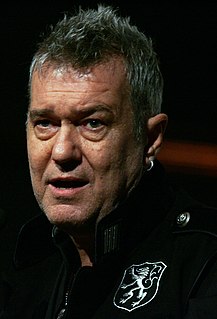Цитата Рика Перлштейна
Когда в 1964 году сбитые американские летчики впервые попали в плен в Северном Вьетнаме, политика США стала в значительной степени игнорировать их - неотъемлемая часть решимости президента Линдона Б. Джонсона скрыть от общественности расходы на его все более бесполезную военную эскалацию в Юго-Восточной Азии.
Темы цитат
Американская
Азия
стала
Издержкой
Определение
Восточная Азия
Эскалация
Сначала
бесполезно
Его
игнорирование
Все чаще
Джонсон
Держит
Военные
Много
Севера
Северный Вьетнам
Часть
Части
И Посылки
Пилоты
Политика
Президент
Довольно
Заключенный
Общественность
Юго-Восточная
Юго-Восточная Азия
Взята
Их
Вьетнам
Были
Связанные цитаты
Линдон Джонсон — неудобная модель для подражания президенту Обаме. Он почти забытый президент, которого клеймят за неудачную войну во Вьетнаме и критикуют за грандиозные реформы, которые консерваторы осуждают как воплощение федеральной социальной инженерии, которая стоит слишком дорого, а дает слишком мало.
Впервые я заинтересовался Хо Ши Мином в 1964-1965 годах, когда служил в посольстве США в Южном Вьетнаме в качестве офицера дипломатической службы Государственного департамента. Правительство в Сайгоне было на грани краха, и администрация [Линдона] Джонсона готовилась отправить боевые части США, чтобы предотвратить там победу коммунистов. Я убедился, что усилия США не увенчаются успехом из-за отсутствия убежденности у сайгонского правительства по сравнению с дисциплиной и чувством самопожертвования среди вьетконговцев.
Через несколько дней после инаугурации Ричарда Никсона в январе 1969 года советник по национальной безопасности Киссинджер попросил Пентагон изложить варианты бомбардировок Индокитая. Предыдущий президент Линдон Бейнс Джонсон приостановил свою собственную кампанию бомбардировок Северного Вьетнама в надежде договориться о более широком прекращении огня.
Большая часть общепринятых представлений, связанных с Вьетнамом, была крайне неточной. Далекая от неизбежного результата императива сдерживания коммунизма, война стала возможной только благодаря лжи и обману, направленным против американской общественности, Конгресса и членов собственной администрации Линдона Джонсона.
В 1970-х у нас было лейбористское правительство, которое уделяло больше внимания торговле с Азией; война во Вьетнаме закончилась, и сюда стали прибывать беженцы. Мы были больше частью Азии, чем Америки и остального мира. Во-первых, близость — все эти страны и культуры к северу от нас. Просто имело смысл, что мы были частью этого.






































